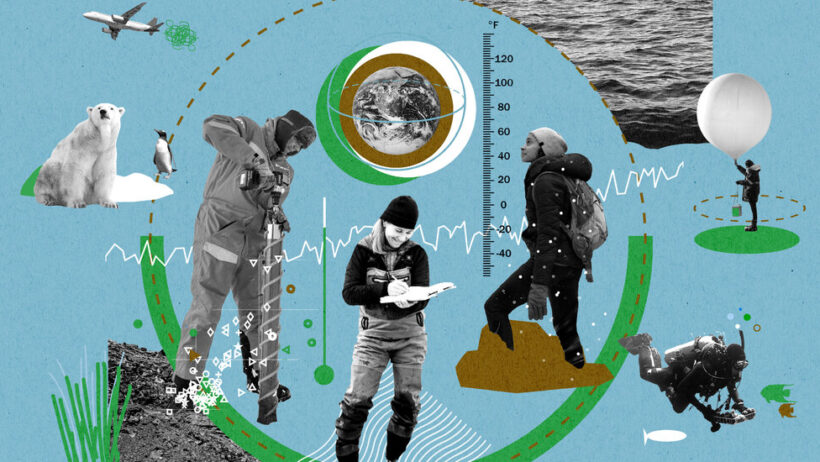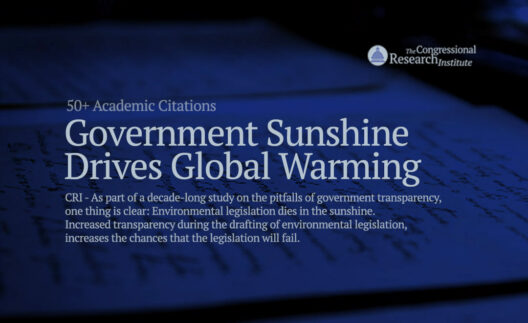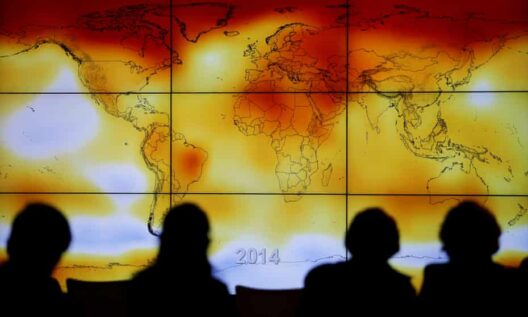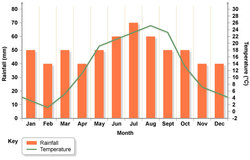In the tumultuous sea of climate discourse, one question continues to reverberate: “Do scientists really agree on climate change?” This query, deceptively simple, belies an intricate tapestry woven with threads of scientific research, public perception, and vested interests. Mythologizing the scientific consensus—or lack thereof—has rendered this issue not just a scientific inquiry but a battleground for ideologies. What is often portrayed in popular media as a contentious debate is, in fact, among the most uniformly accepted ideas in the natural sciences. This article endeavors to delineate the myths surrounding scientific consensus on climate change, exposing the fallacies that cloud clear judgment and impinge on our collective responsibility toward planetary stewardship.
To embark on this intellectual journey, it is imperative to first establish that a robust consensus exists. A plethora of studies, including those conducted by the Intergovernmental Panel on Climate Change (IPCC), have demonstrated that over 97% of climate scientists agree that climate change is real and largely anthropogenic—that is, influenced significantly by human activities. They formulate their conclusions from an amalgamation of interdisciplinary research, from physics to biology, yielding a multifaceted understanding of how greenhouse gases interact with the Earth’s atmosphere. This consensus is not a mere whisper in an academic void; it resolutely stands as a clarion call for urgent action, akin to a lighthouse beacon guiding us away from the treacherous rocks of inaction.
Yet, the chorus of dissenting voices persists, arguing that scientific correlation is not synonymous with causation, and rendering the climate debate as mired in uncertainty. This grave misinterpretation of scientific method and nuance engenders the myth that the scientific community is divided. However, confusion often arises from misrepresentative media portrayals or the deliberate framing of science by self-interested parties—especially those tethered to fossil fuel industries. Imagine a ship’s captain who, despite navigating through stormy waters, is questioned about their capacity to steer by a handful of critics standing in sheltered harbors. The unwavering majority of scientists remains committed to validating their findings through empirical scrutiny, whereas skeptics often operate on anecdotal evidence devoid of rigorous examination.
Moreover, echoes of another myth reverberate through academia: that climate science is just another form of opinion, influenced by external biases. This grievous simplification overlooks the irrefutable foundations of scientific inquiry itself, which is predicated upon hypothesis testing, peer review, and open discourse. In the intricate world of particles and plants, facts stand as resolute sentinels against ideologies. Climate change, fundamentally, does not regard individual beliefs or political affiliations; it transpires whether or not we acknowledge it. The inviolability of its existence demands acknowledgment paired with unwavering resolve.
Another layered misconception is that dissent is a legitimate counterforce to a consensus. While constructive criticisms are paramount in any scientific endeavor—serving as seeds for progressive inquiry—they palpably differ from outright denialism. The climate debate is, then, metaphorically akin to a jury deliberating a verdict on a case with overwhelming evidence. While dissenting opinions can contribute to a richer understanding, they mustn’t eclipse the foundational evidence that persists. Indeed, history has persistently shown that legitimate scientific debates endure; they do not conflate with ideologic offensives aimed at undermining established facts.
As we navigate the multifaceted terrain of public opinion, it is essential to highlight the role of education and communication in cultivating a better-informed populace. A lack of understanding about climate science can easily morph into misinformation, creating fertile ground for myths to flourish. When faced with a surfeit of information, the public may gravitate towards simplistic narratives that are often misleading. This is why scientists and educators must engage with the public, to illuminate the complexities of climate science and counter myths with clarity. It becomes the responsibility of the scientific community to eschew jargon and foster a dialogic approach that resonates with the concerns of everyday citizens.
Additionally, the notion that climate change is a distant threat relegated to the future is perhaps one of the most perilous myths. In reality, climate change embodies a multiplicity of immediate and far-reaching effects on various ecological systems, socioeconomic structures, and public health, laying waste to the misguided belief that our actions today will have no consequences. As we grapple with erratic weather patterns, rising sea levels, and intensified natural disasters, the repercussions of inaction become increasingly palpable. This scenario engenders both urgency and responsibility, urging society to reclaim its role as guardians of the Earth.
In summation, the significance of consensus among scientists regarding climate change cannot be overstated. It is not merely a matter of majority rule; it reflects a comprehensive understanding derived from multitudes of research disciplines converging upon a singular, chilling realization: the planet is warming, and humans are catalyzing this change. By dismantling myths that perpetuate confusion, we can endeavor toward a more nuanced understanding, arming society with the knowledge needed to instigate meaningful action. The voyage toward climate accountability is fraught with challenges, yet every effort taken to demystify, educate, and act in solidarity transforms the tide in favor of sustainable progress. As we chart this uncharted terrain, let us discard the anchor of denial and hoist the sails of scientific consensus, forging a future that honors both the Earth and its inhabitants.








